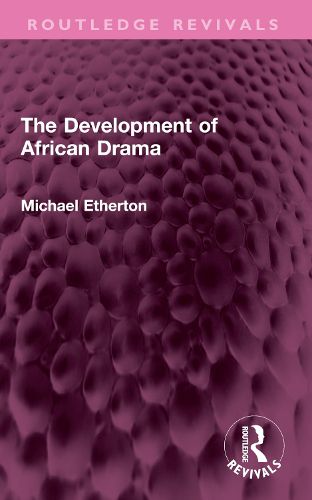Readings Newsletter
Become a Readings Member to make your shopping experience even easier.
Sign in or sign up for free!
You’re not far away from qualifying for FREE standard shipping within Australia
You’ve qualified for FREE standard shipping within Australia
The cart is loading…






Originally published in 1982, this book explores concepts such as 'traditional performance' and African theatre'. It analyses the links between drama and ritual, and drama and music and diagnoses the confusions in our thought. The reader is reminded that drama is never merely the printed word, but that its existence as literature and in performance is necessarily different. The analysis shows that literature tends to replace performance; and drama, removed from the popular domain, becomes elitist. The book's richness lies in the constantly stimulating analysis of 'art' theatre, as exemplified in protest plays, in African adaptations and transpositions of such classical subjects as the Bacchae and Everyman, in plays on African history, on colonialism and neo-colonialism. The final chapters argue that the form of African drama needs to evolve as the content does.
$9.00 standard shipping within Australia
FREE standard shipping within Australia for orders over $100.00
Express & International shipping calculated at checkout
Originally published in 1982, this book explores concepts such as 'traditional performance' and African theatre'. It analyses the links between drama and ritual, and drama and music and diagnoses the confusions in our thought. The reader is reminded that drama is never merely the printed word, but that its existence as literature and in performance is necessarily different. The analysis shows that literature tends to replace performance; and drama, removed from the popular domain, becomes elitist. The book's richness lies in the constantly stimulating analysis of 'art' theatre, as exemplified in protest plays, in African adaptations and transpositions of such classical subjects as the Bacchae and Everyman, in plays on African history, on colonialism and neo-colonialism. The final chapters argue that the form of African drama needs to evolve as the content does.